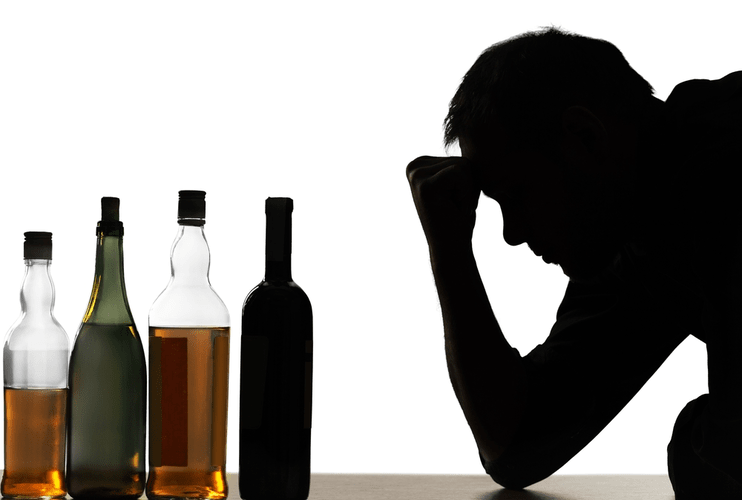Contents
Surprisingly, some scientists believe sugar to bemore addictivethan drugs, such as cocaine. While there is disagreement on whether sugar can create a physiological or neurochemical addiction, evidence points to at least a strong psychological addiction. Debra Waters is an experienced online editor and lifestyle writer with a focus on health, wellbeing, beauty, food and parenting. She currently writes for Goodto and Woman&Home, and print publications Woman, Woman’s Own and Woman’s Weekly. Previously, Debra was digital food editor at delicious magazine and MSN.

Mixed drinks often contain large amounts of additional sugar, but the alcohol itself does not contribute to your sugar intake. However, all alcoholic beverages contain a significant number of calories and have little to no nutritional value. We specialize in providing compassionate and highly individualized more about alcohol addiction and abuse substance abuse treatment that is evidence-based and outcome-driven. Finally, extensive and thorough aftercare programs have demonstrable benefits in helping prevent relapse. In this specific context, they will also help the individual maintain a proper nutritional plan and manage cravings.
Don’t skimp on food.
Below, we’ll explore why cravings happen and offer a few tips to manage them, from in-the-moment techniques to long-term coping strategies. “Alcohol cravings can be very intense, especially in early recovery,” explains Ruby Mehta, licensed clinical social worker and director of clinical operations for digital recovery platform Tempest. This year, though, I’ve been much more aware of how much I’m drinking, and what I’m drinking, simply because I don’t want to slip back into my habit of weekend binges just for the sake of it. Our online classes and training programs allow you to learn from experts from anywhere in the world. Gradually desensitizes you to the substance’s effects, requiring you consume more to get the same “feel-good” response. Ria Health offers several FDA-approved medications for alcohol use disorder.
- If you or someone you know needs rehabilitation for alcoholism, a treatment facility like Steps to Recovery should be the first place you call.
- Last year, after a couple of weeks, I was back to my old ways without thinking much about my sober experience.
- Most addictive substances don’t share the connection alcohol has with sugar, so sugar cravings tend to surface only for AUDs.
- Fortunately, understanding why you’re craving sweets after quitting alcohol and finding ways to avoid sugar can help you maintain a healthy recovery.
These include disruptions to your body’s blood sugar regulation, and mood swings due to a drop in serotonin. These spikes and crashes make sugar cravings incredibly common in early recovery from alcohol use disorder. People who abruptly stop drinking may lose a significant source of their calorie intake and have disrupted their body’s blood sugar regulation. For that matter, as we’ve also noted above, there are many different elements in play as regards sugar cravings. Therefore, as each case differs from the next, a personalized rehab program can only help ensure a successful recovery.
Well, craving sugar after stopping alcohol is the result of a whole culmination of reasons. While most people attribute their post-drinking sugar cravings to their body’s reaction to the reduced intake of sugar that’s usually found in alcoholic drinks, this isn’t a complete explanation. Did you know that it’s common for people who have struggled with alcohol addiction to have low blood sugar? The liver, the organ that processes any alcohol you drink, is in charge of releasing glycogen into your blood. Alcohol stops this from happening, causing your blood sugar to drop.
Protein-ify your breakfast.
Some research indicates that methamphetamine use can reduce blood glucose levels³, driving people toward sugary foods or drinks. In addition, the appetite suppressing properties of stimulants make eating nutritious foods less likely. Some people in recovery use high sugar foods as a survival strategy to get sufficient calories when other foods are unpalatable.

Therapy with a trained mental health professional — particularly one who specializes in substance use and recovery — can be another great way to explore long-term changes in alcohol use. Research has shown there are biological links between alcohol and sugar consumption, with many alcohol-dependent people having a preference for sweet things. When your blood sugar is low, it’s natural for your body to crave sweets to counteract it. Even if you indulge and give your body sugar to level out, it won’t solve the issue long term. Your blood sugar will drop again, landing you right back where you started. As mentioned above, it can be tricky to keep sugar out of your diet.
Completing Personalized Rehab Programs
Healthline has strict sourcing guidelines and relies on peer-reviewed studies, academic research institutions, and medical associations. You can learn more about how we ensure our content is accurate and current by reading our editorial policy. Once you identify the cues, routines, and rewards that keep your habit loop on a repeat cycle, you can experiment with new routines that yield even more fulfilling rewards. And finally, the reward that reinforces the habit — a pleasant buzz, a better mood, or a drop in your stress levels. Understanding the three distinct components of your habit loop can help you come up with more specific strategies to overcome cravings when they pop up.

To keep your blood sugar levels balanced and avoid sugar cravings, you need to maintain a healthy diet like the pro-recovery diet. Therefore, it is vital that addiction treatment providers understand this connection and take decisive, calculated steps toward addressing it. From personalized behavioral therapy to nutritional guidance and robust aftercare, sugar cravings can be managed effectively, ensuring a successful recovery. Experiencing sugar cravings when stopping alcohol can occur when a person replaces one addiction with another, also known as transfer addiction.
Sugar and alcohol both stimulate dopamine
You expected discomfort and intense cravings when you quit alcohol, but not this. This type of craving is new, and you can’t get it out of your head. Almost like a shadow, it seems to follow you throughout your day. It would be easy to give in, but can alcoholics drink in moderation you’ve seen all the recent news about the negative effects it can have. Sugary foods can easily fill in this gap, especially given that eating sweets is much more socially acceptable and appears less detrimental to your health than drinking.
In truth, it’s not always such a bad thing to eat some extra sugar in recovery. Allowing yourself to indulge in sugary snacks can help you stay sober—especially in the early days of recovery. However, relying on sweet treats to curb your alcohol intake should only be a temporary solution, not a long-term one. On the topic of mood, both sugarand alcoholare known to affect serotonin, one of the body’s main “feel-good” hormones. This is why having a drink, or eating something sweet, can take the edge off feelings of stress or depression. Many heavy drinkers are hypoglycemic, or have low blood sugar, which can cause them to crave sweets.
Why do I crave sugar? Causes of sugar cravings and how to stop them
This can become especially apparent when alcohol is removed from the equation. Some heavy drinkers may also experience “cross-tolerance” between alcohol and sugar. Cross-tolerance means that someone who is dependent on one addictive substance may also have higher tolerance for another. This can make it easier to become dependent on that other substance—such as replacing alcohol with sugar. After you quit drinking, your body knows that it can reach a similar state through sugar. In fact, according to the Journal of Psychoactive Drugs, sugar affects many of the same neural pathways in the brain as alcohol does.
While relying on sweets to keep you sober in the early stages of recovery can be beneficial, becoming dependent on sugar to stay sober is a whole other problem. Not only does sugar’s long-term effects on the body – like cardiovascular disease and type 2 diabetes – pose a problem, but the goal of sobriety is to not be reliant on any substance. If you’re prone to addictive behaviors, then you may be more likely to turn to other alternatives, such as sugar, to stay sober. Now that you’ve made the courageous decision to quit drinking, the future looks brighter.
Rather, it can make you feel less like drinking because it makes it difficult for your body to metabolize alcohol. If you drink when taking this medication, you’ll experience a number of unpleasant and unwanted effects, including nausea and vomiting, headache, sweatiness, and more. It’s not prescribed as often as it once was, but it’s still an option. Of course, alcohol and sugar cravings can sometimes go hand in hand.
But in spite of your goals and no matter how committed you are to changing your habits around drinking, avoiding alcohol might prove a little more difficult than you expected. According to UK government data, 3.1 million people tried to give up alcohol this year, with many going into the new year with how to create a meaningful life in 7 days and make the plan of drinking less to salvage their livers and wallets. Rather than giving in to the craving right when it strikes, wait it out. Drink water or tea to fill your stomach, and see if the desire for sugar lessens. Some people notice they overcome their cravings by not immediately “feeding” them.
